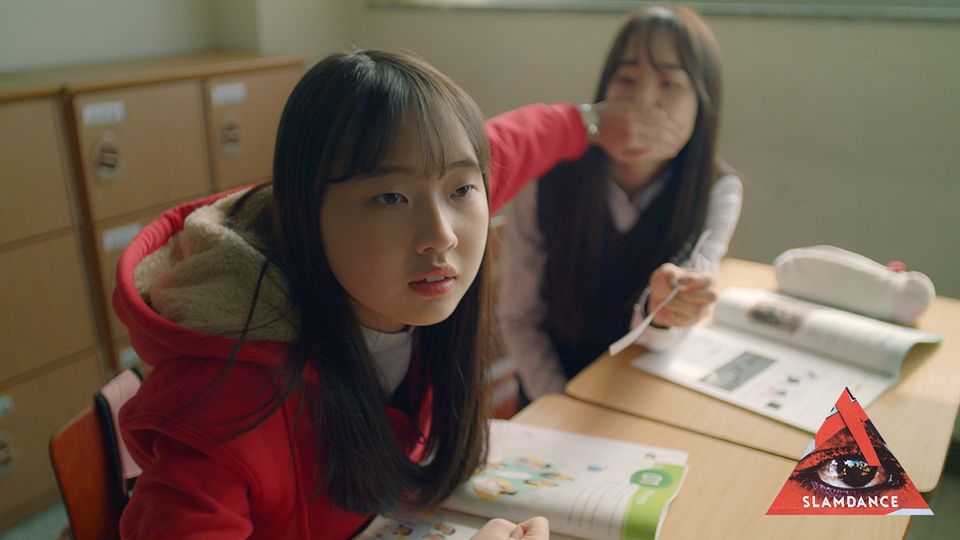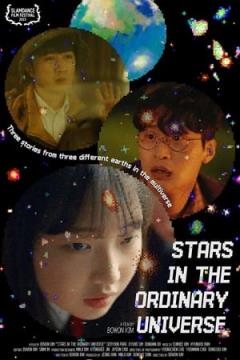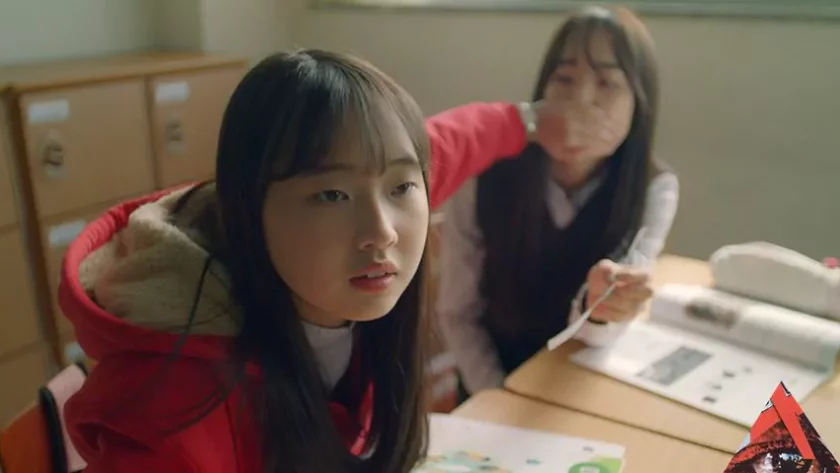Slamdance Film Festival is kicking off the new year with films from emerging artists! The FilmSoc Journal is back to deliver the hits and misses of the independent film festival.
Elena Goh reviews Stars in the Ordinary Universe, Bowon Kim’s multiverse film about happiness, themeaning of life, and everything in between.
Have you ever read a collection of short stories by Haruki Murakami or Neil Gaiman? If you have, imagine that one kooky story you never really understood— the tiny one that was wedged between two epics like a comma, the one that went nowhere and left you thinking, “Uh? Ok?” before you moved on, then made you confused when it was, out of the many fantastic tales in the collection, chosen for a high-budget film adaption. Now, imagine all three of those thoughts, add a dash of Everything Everywhere All at Once (2022), stir in a pop of colour, and you get something like Stars in the Ordinary Universe.

World premiering in the 2023 Slamdance Film Festival, Stars in the Ordinary Universe is a sci-fi anthology directed by Bowon Kim and produced by Han Jung, Minji Kim and Dongho Shin. The film is divided into three sections, each following the extraordinary quest of an ordinary person and their struggle with a philosophical subject: a high-school girl and the meaning of life, a beggar and human ambition, and a middle-aged man and the value of truth. Each story is then situated in a “different earth in the multiverse”.
In the first story, a high schooler is horrified by a Youtube video on Darwin’s theory of evolution and the notion that her life’s sole purpose is to pass down DNA. Determined to find the meaning of her life, she cuts class to interrogate the Youtuber, the internet and a priest on the subject. In the second story, a homeless beggar recounts how he grew up believing he’d be the president of South Korea, only for the harsh truth of unemployment and poverty to stomp on his delusion. In the third story, a man is pathologically plagued by his mission to tell people the truth, and as a result gets beaten up by everyone around him. Nihilism pervades the film, but its tales are told with a quirky sense of humour which, for all their absurdism, make them feel oddly endearing.
In the film’s experimentation with the multiverse, the repeated motifs make for a fun connecting line through the various stories, suggesting that stories and events will repeat themselves throughout the multiverses- even if the characters change. It’s fun to observe the characters’ interconnectedness, and it’s fun to watch the insertions of digital culture as the characters take on their eccentric quests. In the first story, for example, the high schooler turns to Youtube video’s comment section to determine her value as a human and (quite inevitably) gets insulted by a series of internet trolls. The sentient rock, who nags at her for having poor grades, is also a sweet throwback to the kookiness of Everything Everywhere All At Once (2022). Reminiscent of Wes Anderson’s cinematic style, the shifting perspective and bold colours of each story create a sense of playful unreality, drawing attention to each story’s fairy tale-quality and sense of meta-narration. Regular breaking of the fourth wall also adds to the film’s light-hearted experimentation with the limits of film and framing. In one of my favourite scenes, a priest has a spiritual crisis in the middle of a confession, resolves it in 2 minutes and then, with the iridescent sunlight framing his hair like the Ecstasy of Saint Teresa, asks the high-schooler to pay a fee for his services.

The deadpan humour is definitely enjoyable, even if some of the jokes fall flat and the pacing could be tighter. Personally, I felt that the second story forms the weakest narrative. While Kim effectively undercuts the film’s absurdity with a reflection on the harshness of South Korea’s employment market, the superficiality of the beggar’s ambition made his downfall feel more tedious than tragic, and scenes of his performative disappointment dragged on longer than necessary. Especially because this sense of delusion intensifies in the film’s final story — the truth is my curse and I must speak it, the man’s mantra goes. So I must tell that old woman that whatever happiness she feels before her imminent death is insignificant in her life of evident suffering. Also, my girlfriend needs to know that we should only date for another year and nine months before the oxytocin wears off. As funny as it is, the film’s satirical black comedy does get repetitive, and one can’t help but feel that it limits the exploration of each philosophical concept into being merely skin-deep.
Nonetheless, at the risk of over-analysing the film, I thought that it was an interesting portrayal of how classic philosophies or mantras would fit in a postmodern context. In a punishingly competitive South Korea, the film suggests that there is no space for profound meaning or ambition in the whirlpool of daily responsibilities. Ultimately, it is how we handle our daily lives that defines and confirms our existence — I do homework, I go for job interviews, I get dumped, and therefore I am. What value is there in extreme truth, the film wonders, when so much of the happiness in our lives is based off tenuous delusions that we call hope? Echoing its title in the last bit of the film, it ultimately ties up its questions and provides an answer reminiscent of Kurzgesagt’s nihilistic optimism: like the stars, life doesn’t have any particular meaning, but it can be quite beautiful. Like Everything Everywhere All at Once (2022), the storylines play with association between the multiverse and superheroes, deliberately placing ordinary people in a cosmic web to elevate the mundane to something dignified and precious. Meaning is forged through the pursuit of it, and happiness comes from the humblest of dreams and the people we love. For a film that is 90% black comedy and absurdism, its ending is strangely touching.
As a whole, Stars in the Ordinary Universe is innately likeable for its quirkiness, and as an experimental series, it’s much more self-aware and less pretentious than Netflix’s Persona. Amongst the cinematic giants South Korea has been producing, it comes off as a breath of fresh air — air that’s a little off-kilter, a little weird, and a little sweet.




